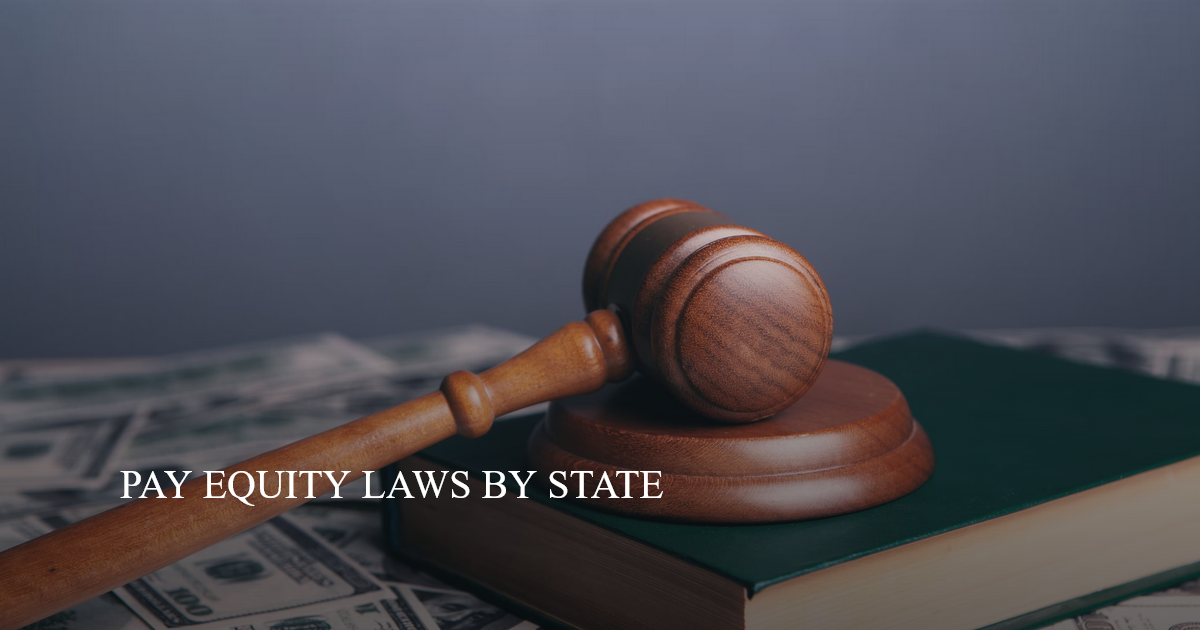Summary. At-will employment is the principle that employers can terminate their workers’ employment, and workers can leave their job at any time, and for any reason without legal retribution. All states except Florida, Georgia, Louisiana, and Rhode Island have at-will employment exemptions. Some exemptions include public policy exemptions, covenant of good faith, and implied contract exception.
If you’re hiring employees, you need to understand what at-will employment is and what its limitations are in your state. This will help you avoid expensive lawsuits as well as avoid unnecessarily keeping employees you need or want to let go.
In this article, you’ll learn about the different at-will employment exemptions in each state, the federal laws limiting at-will employment, and some of the benefits of at-will employment for employers.
Key Takeaways:
-
All but four states (Florida, Georgia, Louisiana, and Rhode Island) have at-will employment exemptions, including public policy exemptions, covenants of good faith, and implied contract exceptions.
-
The state of Montana only allows at-will employment during a six-month probation period at the beginning of a worker’s employment.
-
There are national laws that limit the scope of at-will employment, including anti-discrimination, protected leave, and whistleblowing laws.
![At-Will Employment States [2023]](https://www.zippia.com/employer/wp-content/uploads/2022/08/at-will-employment-states-1.png)
States With At-Will Employment
All states have at-will employment in some form, although Montana has the strictest state policy that only allows at-will employment during the first six-month probationary period an employee is in a position.
While the other states are less strict than this, most have exemptions that limit at-will employment, including public policy exemptions, covenants of good faith, and implied contract exceptions. Here is the list of which states have each of these:
| State | Public Policy Exemption | Covenant of Good Faith | Implied Contract Exception |
|---|---|---|---|
| Alabama | x | x | |
| Alaska | x | x | x |
| Arizona | x | x | x |
| Arkansas | x | x | x |
| California | x | x | x |
| Colorado | x | x | x |
| Connecticut | x | x | x |
| Delaware | x | x | |
| Florida | |||
| Georgia | |||
| Hawaii | x | x | x |
| Idaho | x | x | x |
| Illinois | x | x | x |
| Indiana | x | x | |
| Iowa | x | x | x |
| Kansas | x | x | x |
| Kentucky | x | x | x |
| Louisiana | |||
| Maine | x | ||
| Maryland | x | x | x |
| Massachusetts | x | x | |
| Michigan | x | x | x |
| Minnesota | x | x | x |
| Mississippi | x | x | x |
| Missouri | x | x | |
| Montana | x | x | |
| Nebraska | x | x | |
| Nevada | x | x | x |
| New Hampshire | x | x | x |
| New Jersey | x | x | x |
| New Mexico | x | x | x |
| New York | x | ||
| North Carolina | x | x | |
| North Dakota | x | x | x |
| Ohio | x | x | x |
| Oklahoma | x | x | x |
| Oregon | x | x | x |
| Pennsylvania | x | x | |
| Rhode Island | |||
| South Carolina | x | x | x |
| South Dakota | x | x | x |
| Tennessee | x | x | x |
| Texas | x | x | |
| Utah | x | x | x |
| Vermont | x | x | x |
| Virginia | x | x | |
| Washington | x | x | x |
| West Virginia | x | x | x |
| Wisconsin | x | x | x |
| Wyoming | x | x | x |
At-Will Exemptions
Most states (Florida, Georgia, Louisiana, and Rhode Island being the exceptions) have some form of exemption that prevents employers from firing employees if the employee was refusing to disobey a law, if the employer had otherwise led the employee to believe their job was safe, or if the employer had implied that the employee can only be fired for “just cause.”
-
Public Policy Exemptions
Public policy exemptions prevent employers from firing employees for doing things that are their legal right or obligation to do. Some examples include:
-
Following a local or state law the company was asking them to break
-
Performing jury duty
-
Filing a worker’s compensation claim after being injured at their job
This exemption is held by all but eight states:
-
Alabama
-
Florida
-
Georgia
-
Louisiana
-
Maine
-
Nebraska
-
New York
-
Rhode Island
-
-
Covenant of Good Faith
Covenants of good faith require employers to act in good faith toward their employees. For example, they can’t give an employee good performance reviews that lead them to believe their job is secure one day and then fire them the next without a good reason.
Here are a few more examples of things employers can’t do under this exemption without giving just cause:
-
Firing an employee just before they were due to receive a large pay increase or bonus
-
Firing an employee just before they retired to avoid paying their pension
-
Firing an employee just before the company was to pay them a promised tuition reimbursement
-
Lying about why they fired an employee
Only six states don’t follow this exemption:
-
Florida
-
Georgia
-
Louisiana
-
Maine
-
New York
-
Rhode Island
-
-
Implied Contract Exception
Under the implied contract exception, employers can’t fire employees without cause when they’ve stated or implied that they wouldn’t be fired without cause. This applies even if the employee signs a contract saying they understand their employment is at will.
Implied contracts often come from employee handbooks or verbal assurances to employees.
This is the least popular at-will exemption, as thirteen states don’t apply it:
-
Delaware
-
Florida
-
Georgia
-
Indiana
-
Louisiana
-
Massachusetts
-
Missouri
-
Montana
-
North Carolina
-
Pennsylvania
-
Rhode Island
-
Texas
-
Virginia
However, this is the only at-will exemption Maine and New York have.
-
Additional At-Will Laws and Limitations
In addition to state-mandated exemptions, there are laws and limitations that apply to at-will employment across the board.
-
Anti-Discrimination Laws
No matter what their state’s at-will policy is, employers can’t fire employees for any of these reasons:
-
Race
-
Gender
-
Religion
-
National origin
-
Sexual orientation
-
Genetic information
-
Age
-
Disability/physical health
As an employer, you need to be very cautious about not even appearing to fire someone for one of these reasons if you want to avoid a lawsuit.
-
-
Employment Contracts
If an employer has independent contractors working for them, usually those contracts state the circumstances under which the contract can be broken. Both employers and independent contractors have to follow those requirements.
-
Unionized Jobs
If employees are in a union, employers usually can’t fire them unless there is just cause.
-
Public Sector Employees
Generally, public sector or government employees don’t have at-will employment.
-
Protected Leave
Employers can’t fire employees who are on federally (or state) protected leave such as parental or medical leave covered by the Family Medical Leave Act (FMLA).
-
Whistleblowing
To keep employers from silencing employees who want to report companies’ illegal behavior, there are both federal and state laws that protect employees from being fired for whistleblowing.
What Is At-Will Employment?
At-will employment is the principle that employers can terminate their workers’ employment and employees can leave their jobs at any time and for any reason without legal retribution.
While this isn’t considered the best practice on either the employer’s or the employee’s part, it is their legal right to end the employment relationship at will.
However, as we’ve previously discussed, there are laws and exemptions that put limitations on at-will employment to protect employers from taking advantage of employees, so make sure you have a solid understanding of the laws in your state before you consider firing anyone without cause.
Benefits of At-Will Employment for Businesses
There are several benefits at-will employment brings to businesses, including reducing personnel expenses, increasing agility, and protecting companies from lawsuits.
-
It lets companies cut personnel costs quickly. Sometimes businesses have to act fast to reduce costs so they can stay afloat. Letting employees go is often one of the most effective ways to do this, and at-will employment gives companies the ability to make those cuts with little to no warning.
-
It lets companies change employees’ employment terms. At-will employment also allows companies to change the terms of their workers’ employment without cause, including their job duties, salaries, and benefits.
This allows companies to adjust quickly to changes in their financial or structural needs, which is a huge advantage to their efficiency and bottom line.
-
It protects companies from lawsuits. Companies still have to make sure they comply with all laws and exemptions surrounding at-will employment, but as long as they do, they’ll be protected from employees trying to sue them for terminating them too quickly or without cause.
At-Will Employment States FAQ
-
Which U.S. states are at-will employment?
All 50 U.S. states are at-will employment. This also includes Washington, D.C. However, Montana only has at-will employment during the first six months an employee is in a position.
Besides this, each of these states has exemptions they have to abide by in their at-will employment, and they are often limited by union rules and federal laws as well.
Just four states don’t have any state-mandated exemptions to their at-will employment:
-
Florida
-
Georgia
-
Louisiana
-
Rhode Island
This means that as long as they aren’t breaking any union rules or any state or federal anti-discrimination, contract, whistleblowing, protected leave, or public employment laws, they can fire whoever they wish whenever they wish.
-
-
Can terminated at-will employees collect unemployment?
Yes, terminated at-will employees can collect unemployment. Each state has different laws surrounding who can collect unemployment and will address unemployment claims on a case-by-case basis, but being fired at will won’t automatically disqualify employees for unemployment benefits.
However, if employees are fired for good cause, they may not qualify for unemployment.
To keep employees from lying about the circumstances surrounding their unemployment, employers are given the right to contest unemployment claims made by the employees they let go by providing proof that the employee’s claim is invalid.
To keep employers from overloading the unemployment system, some states may subject companies that fire a significant number of people at will to higher unemployment taxes to help lessen the strain on the government.





